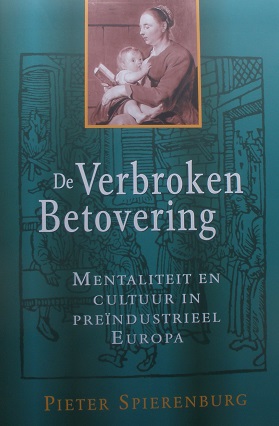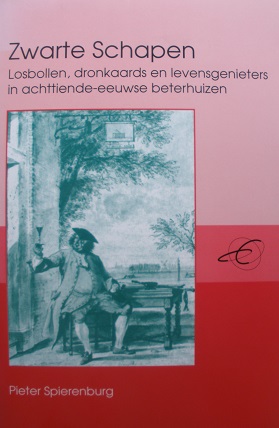 | PLEASE, PLEASE ME'S NUMBER ONE
Please, please me's number one-Pieter Spierenburg
Pieter Spierenburg
PLEASE PLEASE ME'S NUMBER ONE -
MAATSCHAPPELijKE VERANDERINGEN SINDS DE JAREN ZESTIG EN HUN WEERSLAG OP HET BEELD VAN MISDADIGERS EN SLACHTOFFERS
This is my farewell lecture delivered at Erasmus University in 2013. It was exactly fifty years after the first success of The Beatles, which marked the take-off of the youth culture of the famous sixties. This essay charts the major social changes in Dutch society over the five decades since 1963. It then discusses what these meant for people's attitudes toward criminals and victims. Whereas offenders were viewed ever negatively, crime victims enjoyed increasing public sympathy.
--- |
 | DE VERBROKEN BETOVERING
DE VERBROKEN BETOVERING
Pieter Spierenburg
DE VERBROKEN BETOVERING -
MENTALITEIT EN CULTUUR IN PREÏNDUSTRIEEL EUROPA
Published in 1998, this is a thoroughly revised and updated version of The Broken Spell. It provides a synthesis of developments in "low" culture in Europe from the late middle ages to about 1800. After an introduction, part one covers the rise of patriarchy and its discontents, popular culture and life in villages and neighborhoods, the persecution of witches.
Part two, the vicissitudes of the body, covers attitudes toward death, sickness, madness and treatments, violence and suffering, sexuality. The last part focuses on changes in the family and the transition to an industrial society.
Read more... |
 | ZWARTE SCHAPEN
Zwarte schapen
Pieter Spierenburg
Zwarte schapen -
LOSBOLLEN, DRONKAARDS EN LEVENSGENIETERS IN ACHTTIENDE-EEUWSE BETERHUIZEN
This book is based on the rich dossiers, compiled in the eighteenth century, about the "black sheep" from middle-class and elite families confined for some time in private prisons. They were there because they had put shame on their families through bad conduct or insanity. The institutions in question, apart from depriving their inmates of liberty, often were quite agreeable. Not everyone involved was sincere. The dossiers also reveal machinations by relatives and dubious practices by courts to keep prisoners from their due inheritances.
Read more... |







